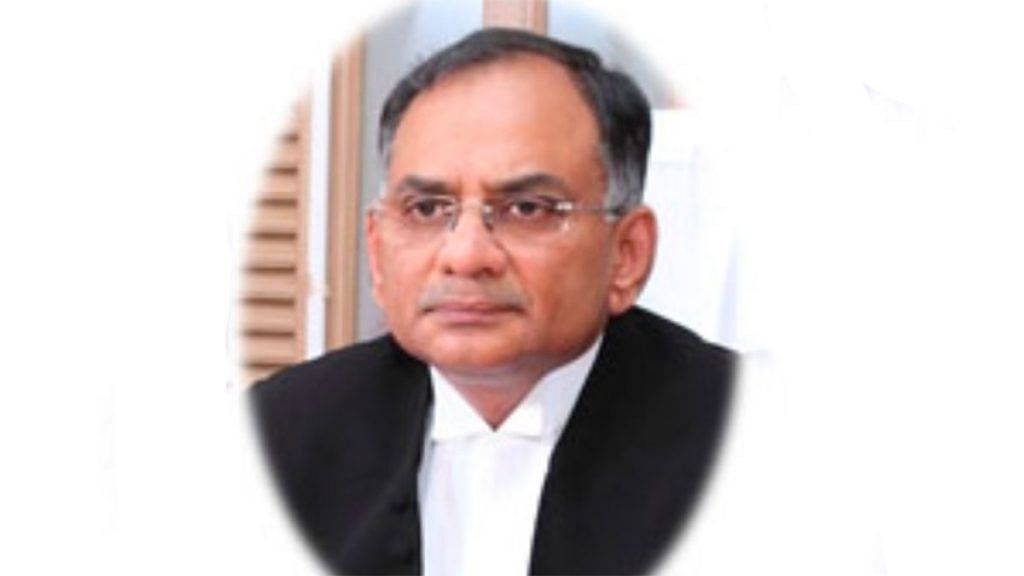India’s courts have often been referred to as the custodians of the Constitution. So, it is expected from individuals who hold the office of a judge that they will uphold the values of the Constitution, not only in their judgments, but also in their conduct in public life. The recent remarks of Justice V. Chitambaresh, a sitting judge of the Kerala High Court prove us wrong.
In upholding the Brahmin caste, Chitambaresh let down democracy.
The Constitution, in the words of political scientist Rajeev Bhargava, was designed to “to break the shackles of traditional social hierarchies and to usher in a new era of freedom, equality, and justice”. This was made possible by the enactment of provisions, which sought to bring into, or closer to, the mainstream society those social groups and individuals “that would have remained at society’s bottom or at its edges”. These provisions primarily include abolition of untouchability, providing of reservation to socially backward groups, and prohibition of discrimination on basis of caste, among other provisions. The Constitution envisions caste equality, where no caste is considered supreme.
This feature of the Constitution was shaped by various struggles against structures of hierarchy and oppression. Justice D.Y. Chandrachud aptly highlighted this in his concurring opinion in Navtej Singh Johar v Union of India: “Throughout history, socio-cultural revolts, anti-discrimination assertions, movements, literature and leaders have worked at socializing people away from supremacist thought and towards an egalitarian existence. The Indian Constitution is an expression of these assertions. It was an attempt to reverse the socializing of prejudice, discrimination, and power hegemony in a disjointed society”. The Constitution, thus, entrusts public office holders with the responsibility of “drawing a curtain on the past” inequalities and prejudices.
Also read: Who is a Brahmin? One who eats veg, loves Carnatic music, has clean habits, says Kerala judge
Justice V. Chitambaresh’s remarks on Brahmins are not only contrary to the above values of the Constitution, but also unbecoming of the constitutional post which he holds. Speaking at the Tamil Brahmin’s Global Meet, Justice Chitambaresh began his address by extolling the virtues of Brahmins. The judge said that Brahmins are “twice born” and possessed certain “distinct characteristics”. He also asserted that a Brahmin should “always be at the helm of affairs”. Justice Chitambaresh then called on the Brahmin community to agitate for economic reservation, rather than caste or communal reservation. He observed, “It’s time for you (Brahmins) to deliberate as to whether reservations should be on the basis of community or caste alone”.
While he maintained that he is not expressing any opinion on the same considering the fact that he is holding a constitutional post, he should have never asked for reconsideration of reservation in the first place. A constitutional office holder should have never talked about virtues and entitlements of a particular caste, which in our history represents a thought of supremacy. Justice Chitambaresh’s words are reiteration of the trenchant thought that believes in caste hierarchy, and considers reservation, provided to socially backward social groups, a threat to that hierarchical supremacy. Considering the fact these remarks come from an office in the higher judiciary, which is often criticised for being non-representative of the marginalised social groups, this is definitely going to send a wrong message to these groups.
Also read: The nauseating nepotism and caste-based discrimination that exists in Indian judiciary
This is not the first time a constitutional officer has behaved this way. In the 1950s, when former President of India Rajendra Prasad had publicly bathed the feet of two hundred Brahmins in Varanasi, socialist leader and thinker Ram Manohar Lohia had openly criticised him for perpetuating caste system. He stated, “To bathe another’s feet publicly is vulgar… To bathe another’s feet on the ground that he is a Brahmin is to guarantee the continuance of the caste system, of poverty and sadness”. Lohia was particularly critical that Dr Prasad did so while holding the highest post of the Indian Republic, and remarked, “The spirit, of which such evil acts are born, can never plan the country’s welfare nor adventure with joy. It will ever keep the vast millions lowly and submerged. It will deny them social and economic equality, just as much as it denies them spiritual equality”.
Also read: No Dalit judge in the country’s top court that passed order on SC/ST Act
In 2015, Justice J.D. Pardiwala of the Gujarat High Court had written in his judgment, in a completely unrelated matter, that reservations have destroyed the country. However, after 58 members of the Rajya Sabha moved a notice to impeach him for the said remarks, the judge deleted the remarks from his judgments, stating them as not “relevant and necessary” while deciding the petition.
In 2018, Justices A.K. Goel and U.U. Lalit of the Supreme Court called the implementation of the Scheduled Castes and the Scheduled Tribes (Prevention of Atrocities) Act, 1989 as “perpetuating casteism” and an adversary of “constitutional values”. Later, on his retirement day, Justice Goel compared the working of the Act with the wrongs done during the Emergency.
A sitting high court judge, who professionally weighs his thoughts and words, can have no justification for making remarks contrary to constitutional and egalitarian values. Justice V. Chitambaresh’s words must be strongly condemned, especially by Chief Justice of India Ranjan Gogoi and his colleagues in the Supreme Court.
The author is LLM’19 postgraduate from Harvard Law School. Views are personal.
